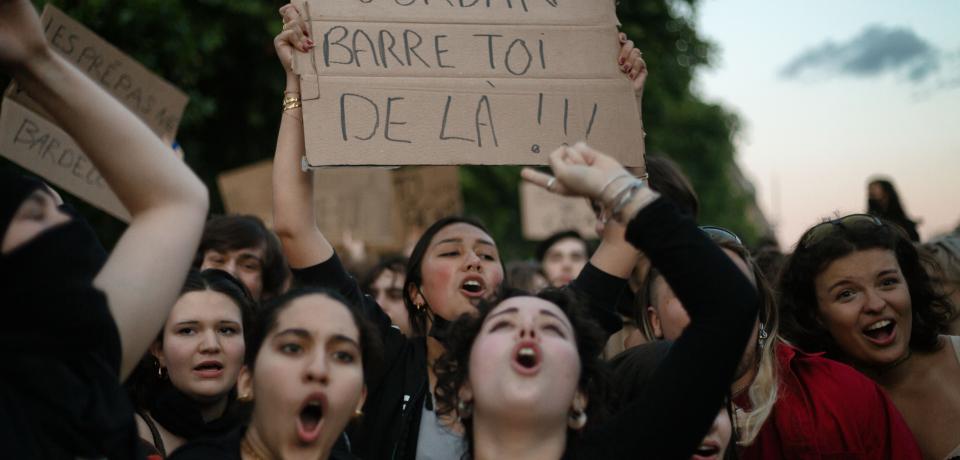
The European Union Parliament was re-elected on Sunday 9 June, bringing an increase in the number of right-wing parties and, above all, a significant increase in the number of far-right lists in several countries.
The 720 members of this parliament are elected by direct universal suffrage. In practice, the authority of this body is weak, even though it is the official legislative body of the EU, which now comprises 27 European states, after the departure of Britain in 2020. The real political power in the EU resides in two bodies. The first is the Commission, which is the "government" of the Union, its executive made up of 27 members, with each national government appointing a commissioner to this body. It has the power to draft and present laws to the European Parliament. The other important body is the European Council, which brings together the Heads of State or Prime Ministers of each Member State. This body sets the EU's main priorities, particularly its foreign policy.
The Parliament therefore has a secondary political role, but is the mouthpiece of the main parties in the European Union. For decades, it has had a stable majority between the conservative right-wing EPP party, the social-democrat S&D party and, more recently, the small centrist and liberal Renew Europe group. These three parties bring together 403 MEPs in the new parliament.
This large majority will ensure continued support for ultra-liberal policies, the erosion of social rights, regulations to create job insecurity and the destruction of public services. These policies are coupled with a racist and inhumane policy towards migrants, support for Israel's criminal policy and its genocidal war against the Palestinian people, and an increase in militaristic arms policies on the pretext of supporting Ukraine.
But beyond the apparent stability of the liberal majority, these European Parliament elections have revealed shifts in the political landscape in the European Union. In France and Germany, the most important countries in the EU, we see a spectacular decline in the lists supporting the governments in power, and a rise in the far right. The first consequence, in France is the opening of a lasting political crisis. In 17 of the 27 countries of the Union, the far right is on the rise, in the wake of several national elections.
In several countries, the far right came out clearly on top: the RN in France with over 30%, the FPÖ in Austria with 25.4%, doubling its number of MPs, and Fratelli d'Italia in Italy with 28.6%. Geert Wilders' PVV won 6 seats in the Netherlands, and the AfD won 6 seats in Germany, coming out clearly on top in the eastern Länder. In Belgium, Portugal and Spain, these far-right forces are consolidating their positions (although in Portugal, Chega only won half the percentage it obtained in the March legislative elections).
In total, the two groups bringing together reactionary nationalist and far-right parties, CRE and ID, gained 13 seats, 131 seats in all.
On the other hand, the centrist Renew Europe group (which includes the Dutch VVD, Open VLD, the party of the resigning Belgian Prime Minister Alexander De Croo, the German FDP and Macron's party) lost 21 seats. Similarly, the Green party lost 19 seats, with significant decline in Germany and France. In several countries, Green parties have failed to distinguish themselves sufficiently from the pro-austerity, anti-environmental policies of the main governmental parties.
These trends are occurring at a time when the far right is in government in a number of countries, including Italy, Hungary and the Netherlands, and is part of coalitions in Finland, Slovakia and Sweden. Today, there are more and more bridges between the European conservative right and the far right, particularly on migration policies and authoritarian leanings.
Unfortunately, left-wing forces have so far failed to build a Europe-wide alternative to the liberal management policies of social democracy capable of rallying the popular electorate. The stakes are therefore crucial in the months ahead.
For the European anti-capitalist left, organizing the unitary fight against far right is a central task. In this direction, we promote united front structures at national level and in local areas based on self-organization and local struggles which are a key element of the united front. It is a vital and urgent matter to build this united front response to the rise of a far right which goes hand in hand with the rise of authoritarian and racist governments, and to find the best way for its defeat in the electoral arena.
In this sense, the creation in France of the New Popular Front is a message of hope and responsibility, at a time when, in a suicidal manoeuvre, Macron has decided, after his defeat, to dissolve the National Assembly, rolling out a red carpet for the arrival of the Rassemblement National and the extreme right, which in its variants has just gathered almost 40% of the votes.
Defeating the advance of the far right, through mobilizations and elections, is a central task of this historic period. The rise of the far right is a symptom of capitalism in deep crisis. Winning against the far right requires unity of the working class, but also a break with destructive, ecocidal, authoritarian and racist capitalism.
16 June 2024